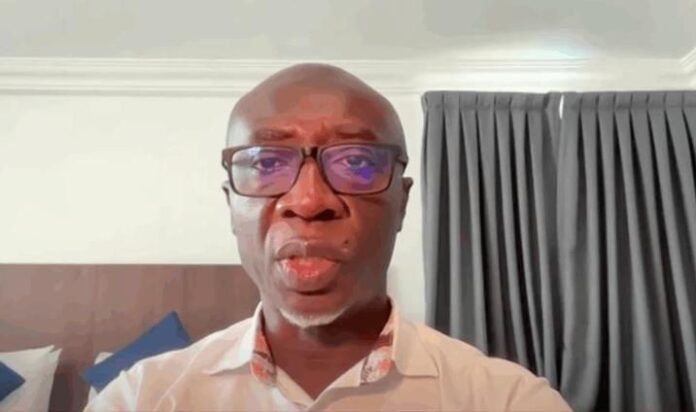The legal outcome of the Ghana–US deportee agreement currently being challenged at the Supreme Court by the pressure group Democracy Hub will depend on Ghana’s commitment to its international law obligations, according to Associate Professor at the University of Ghana Law School, Prof. Kwadwo Appiagyei-Atua.
He noted that Ghana’s responsibilities under international treaties, particularly those prohibiting forced returns, must guide both Parliament and the Executive as they deal with the controversial agreement.
Prof. Appiagyei-Atua explained that even though domestic legal processes, such as the ratification of the Memorandum of Understanding (MOU) by Parliament, are important, they cannot override Ghana’s binding commitments as a member of global and regional organisations like the United Nations (UN), African Union (AU), and ECOWAS.
He pointed to the principle of non-refoulement as the key standard by which the issue must be judged.
The principle, central to international refugee and human rights law, is found in the UN Refugee Convention and the Convention Against Torture (CAT), both of which Ghana has ratified.
“Parliament is bound by certain international agreements, such as the Convention Against Torture, which Ghana is a party, and certain agreements which, including the Refugee Convention, which includes the principle of non-refoulement, which says that you cannot deport somebody to a country where the person might have already suffered torture,” Professor Atua stated.
He added that the government must ensure no deportation occurs if the person “has already suffered torture,” if returning them “would lead to a continuation of that torture,” or if “there’s reasonable grounds to conclude that torture has been taking place in that place, so taking the person there will result in the person being tortured.”
Prof. Appiagyei-Atua stressed that both the government and Parliament “will have to take into account all these obligations that Ghana has” as part of the international community.
He further suggested that in certain cases, international law may take precedence over local statutes, especially where fundamental human rights are concerned.
“There are certain laws which, as international laws, may override the local laws, or we have to make our laws reflect and conform to those international obligations,” he explained.
“So that would be the final determinant, or the basis for Parliament to rule, or to make a decision as to whether the MOU should be ratified, or made domesticated, and made part of Ghana’s laws,” he added.
His remarks come ahead of the Supreme Court hearing on October 22, where Democracy Hub is contesting the government’s agreement with the United States, which has resulted in the deportation of at least 42 West African nationals—none of whom are Ghanaian—through Ghana.
The group argues that detaining and re-deporting these individuals, particularly those protected by US court orders from being returned to their home countries due to fear of persecution, breaches the very non-refoulement principles Ghana is obligated to uphold.
Source: Myjoyonline
ALSO READ:


